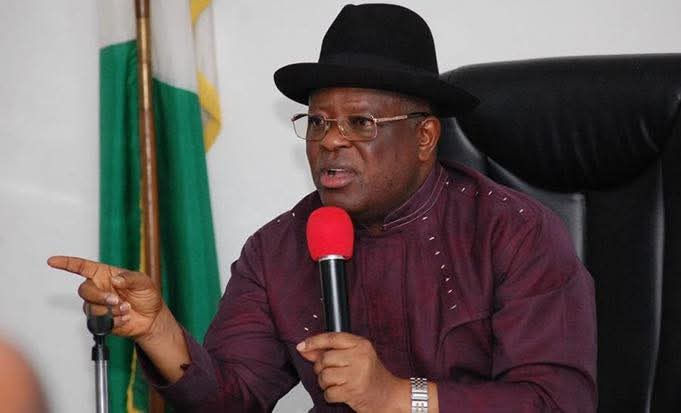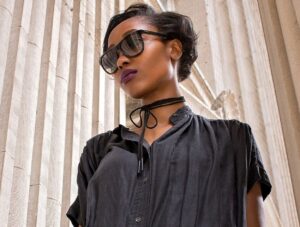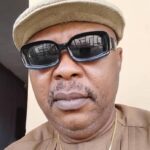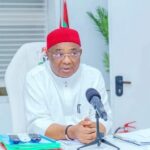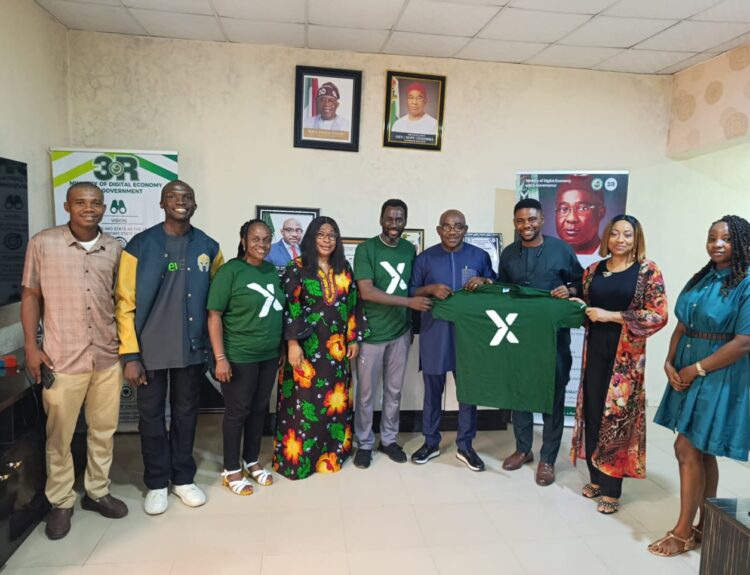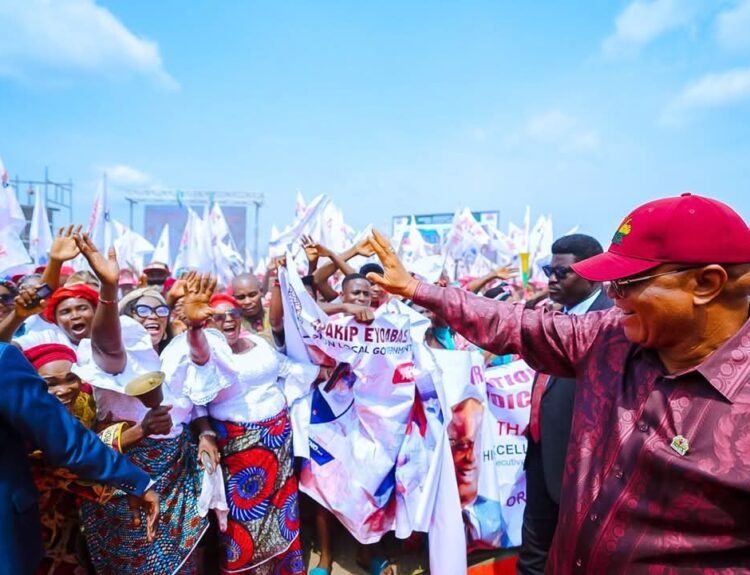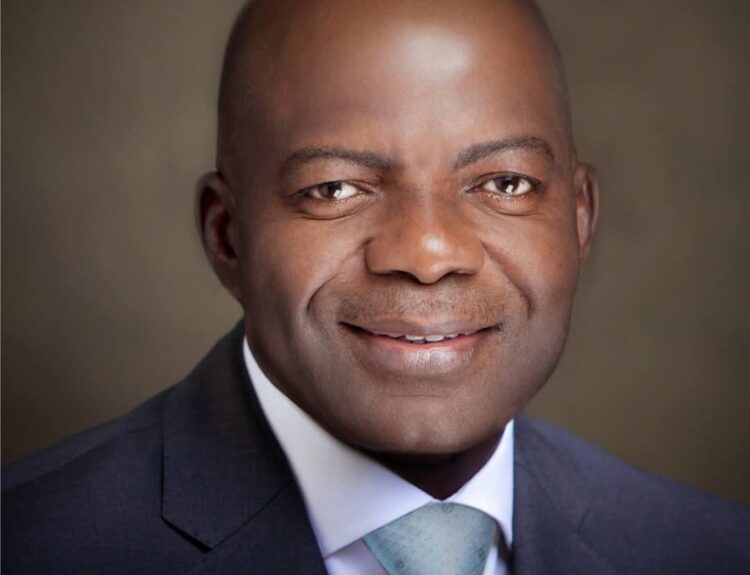By Ethelbert Okere
There is a growing paradox in the relationship between practitioners in the television sub-media in Nigeria and their clients; which is that whereas the television provides optimal exposure and glamour for both, shouting bouts are becoming quite regular on our television screens. Time was when television programme anchors, hosts, presenters, newscasters, reporters etc, were a rare breed, greatly admired and sought after by members of the elite who long to savor in the glamour of the klieg light. The prestige is still there but the increasing incidents of apparent hostilities between television show hosts and their guests is gradually diminishing that attraction.
Two factors are principally responsible for this state of affairs. One, there is a growing similarity between the television – in the Nigerian context, at least – and the social media, both being electronic and preponderantly visual. Two, and perhaps as a corollary, there is a temptation, in several quarters, to believe that, like in the social media, there are no (longer) editors in the television sub-media.
While the argument may be obvious in respect of the social media, that of the television is still debatable. But because television show hosts tend to generally give the impression that they are entirely on their own, there is the temptation to think that the television – in the Nigerian context, still – no longer has gate keepers, just like the social media. For example, television show hosts seem unrestrained on the type of questions they could ask their guests. Quite often, they interrupt the guest in the middle of giving an answer to a question with clearly opinionated interjections.
The other principal factor is the fading attraction and influence of the print media, arising from the revolutionary advent of the social media. Before the television became ubiquitous in our clime and the coming of the social media, the print media was the main arena for public discussions and debates. Opinion, features articles and no-holds-barred interviews were the most formidable avenues for interrogating critical issues. Media handlers of politicians and public office holders fell on each other to get reputable newspapers and magazines to interview their principals; and newspaper and magazine editors on their own would also run after prominent public figures to get their views on important matters.
Indeed, going on television was not quite popular because, aside that television outfits were few – television in Nigeria was a state monopoly until the mid-1990s – people did not bother since the newspapers and magazines gave them what they wanted. Not anymore. While newspapers and magazines have lost much of the attraction they held yesterday, the television is everywhere; and even though appearances are mostly commercialized, the elite – the political elite mostly – has no option except, perhaps, to go to the social media.
Enter the practitioners, the impeccably dressed young men and women on our television screens are the toasts of every political actor and his handler. Now, the big question: Are these TV boys and girls too conscious of their status as beautiful brides? You’d wait forever if you want a plain “yes” or “no” answer but suffice it to say, in the time being, that the ladies and gentlemen we see on our screens appear too sophisticated to fit into such an imagination. I have known and associated with some of them personally since I also once savored in the ‘stardom’ of television appearances.
That was the period I used to appear on AIT’s Kakaaki for newspaper reviews every Monday. I did it for about two years but after the first three months, I discovered that I could hardly walk for a few meters in Abuja, especially, without being recognized as “AIT Man” and in such a manner that conveyed great admiration. Many would call me by name as if they knew me from Adam. Being a shy fellow, I was at unease most of the time but the benefits were there. One fellow that was completely unknown to me paid for my buffet breakfast at the Bukka restaurant of the Hilton Hotel, Abuja, one morning. Another paid for my plate of fresh fish pepper soup at a joint in Jabbi even though I stopped going there after that day.
The incident I cannot forget was the day I was ‘accosted’ at Mama Ada’s place in Wuse 2, a make shift eatery where I used to go for white rice with Ofe Akwu, complete with my faviourite Kponmo (cow skin). As I approached the entrance of the eatery one morning, I was greeted with “See Oga AIT”. I retreated immediately and never went there again. But before you say “you too like food”, see this also: A top politician from my state once refunded me the money I paid for a return ticket to Owerri at the Nnamdi Azikiwe International Airport, Abuja with the remark, “we are proud of you”.
At a point, I was forced to ask my friend, Utibe Umoren, one of the anchors of the Kakaaki show, whether those of them whose faces appear on television everyday ever walk the streets; if I, who appeared only once in a week, could be having the type of experience I have just related. But I was just asking to fulfill all righteousness since I knew the answer to my question: Television men and women are celebrities, greatly admired and even adored.
That being the case, it goes without saying that such a status brings about a lot of expectations and responsibilities. To be sure, our television hosts in Nigeria show a lot of brilliance and an amazing grasp of issues but that on itself requires that they need to be more comported and less emotive than their guests. The reason is simple. The slightest display of emotion by the host may be mistaken for bias. While that cannot be ruled out completely, I believe that it is incumbent upon the television show host to deliberately ensure that he or she is not perceived as such. But this deliberateness or caution does not seem to hold much attraction for many of them. More often than not, the host is so persistent over a particular issue or line of argument to the point of being seen as bullying his guest; the overall result being that the guest may walk away with the impression that he or she was ambushed
Agreed, the host or presenter might be an epitome of classroom knowledge but the point is that in practical terms, the growing incidence of near shouting bouts between television hosts and their guests is creating an impression – falsely, I hope – that something is missing in the professional upbringing of some of the “stars”. In a bid to show mastery of the subject, many a hosts ask unnecessarily windy questions, thus taking up the time that should have been allowed the guest. They interject even when the host is yet to make a full sentence. Then the next thing you will hear is, “we are running out of time but tell me in thirty seconds, how you will solve the security problem in the country if elected?” Haba! Thirty seconds?
At other times, the hosts would ask questions whose answers are given but which they pose, nonetheless. One anchor of a popular evening show in a particular television station is fond of raising his voice to the point of suggesting that he believes or thinks that both his guests and viewers are deaf! More often than not, some anchors completely exhaust the time allocated to their show and eat into the next one simply because the questions are repetitive. And you asked, where are the producers even though it is said that in some cases, the anchors are also the producers. It would, of course, be preposterous to argue that television show hosts should be asking patronizing questions but I am of the candid opinion that there is need for a reappraisal of the modus operandi and general conduct during television shows in order to make them look less like trial courts than seems to be the case currently.
An earlier version of this article was published sometime in October 2022 and which I gave a few instances of hostilities between television show hosts and their guests. However, the recent exchanges between the Minister of Works, Mr. Dave Umahi and one of the hosts of the popular Arise TV programme, The Morning Show, Mr. Rufai Oseni, brought the matter to the fore once again. That incident attracted attention because Mr. Oseni has since cut out for himself the reputation of the “hard hitter” among the crew.
Before the encounter with the Works Minister, Oseni had had an encounter with Mr. Lere Olayinka, media aide to the Minister of the Federal Capital Territory, Mr. Nyesom Wike. The Oseni-Umahi matter has been variously interpreted but methinks that it is high time something is done about the prevalence of hostilities on our television screens. Is there nothing managers of the stations or the regulatory authorities can do about this state of affairs? My view, quite frankly, is that some of our TV stars need to do better.
Some commentators have raised the issue the professional training. Olayinka in his exchanges with Oseni claimed that the latter studied Animal Science and, therefore, has no business on television. He is right if there evidence that Mr. Oseni does not have additional training in Journalism or Broadcasting even though he might not be the only non-journalist practicing the profession in our clime. In other words, it is incumbent upon Oseni and the regulatory authorities to provide evidence that he got additional training that qualifies him to be a broadcaster. Agreed, many personalities go ahead to excel in areas they are not initially trained in but at a time when the system is saturated with people who are both trained and talented in specific fields, non-trained practitioners in sundry fields should be encouraged to go for proper training. In any case, would the Rufais of this world have allowed a non-trained Lawyer, for instance, appear on their show to speak as a lawyer?
Conversely, I believe that something is wrong where a Minister asks a reporter – the generic nomenclature for journalists – “Who Are You?” or “You Know Nothing”. A Minister of the Federal Republic should be able to overlook any real or perceived excesses of his or her interrogator in public. Such a scenario, as was witnessed, is unedifying to our collective national psyche. Over all, we need to improve on the standard of our public debates from both the side of public officials and their interrogators.
